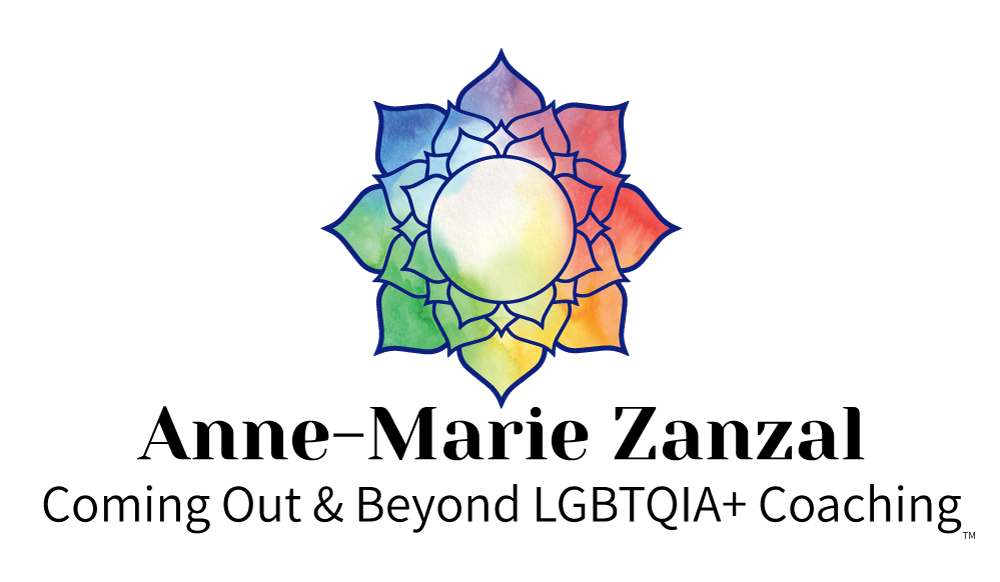I have a secret to admit, but please don’t tell anyone. I used to have a very strong aversion to the word “coach”. My experiences with this word dates back to my non-athletic youth, when a parent would take on the responsibility of teaching a bunch of kids on how to play a sport. Already in full people pleasing mode by the age of eight, sports were a minefield for me.
I never wanted to disappoint anyone with “failure” on my part. I had this need to always be the “perfect” player for the team, score that basket, or to never strike out. Yes, I know I was missing the point of team sports, but no one ever sat down to explain this to me. So I spent my youth avoiding team sports and never really had the experience of a strong supportive coach.
Several years ago I began a counseling practice for women coming out later in life. Originally it was just with groups, but as time wore on I realized that there was a need for individual one on one counseling. So I hung up a counseling shingle. Although I am not a therapist, I am a counselor.
What Is A Counselor?
Counseling is a professional relationship that empowers diverse individuals, families, and groups to accomplish mental health, wellness, education, and career goals. I worked for years in hospitals and hospice as a chaplain and bereavement counselor. I have a Master of Divinity from Yale Divinity School and I am an ordained minister in the progressive United Church of Christ. I have training in a clinical setting, including a year residency in a level one hospital trauma center. I provided support for countless people as they navigated difficult periods of their life, including the end.
Ironically, much of the same work I do with women now is navigating the end of one way of being and embracing another way of existing. Who knew my hospice experience would come in so handy?
So am I a Coach or a Counselor?
Many people when they are coming out later in life seek the services of a therapist, which I highly recommend, (1 Read how to find a competent LGBTQIA+ therapist here https://www.goodtherapy.org/blog/lgbt-therapist/ ). Many of my clients see a therapist along with individual coaching and/or mutual group support. Sometimes therapists simply do not understand the needs of our later in life community or the magnitude of the change we go through. I soon realized although my background is firmly planted in counseling training, the work I do day in and day out is coaching. I finally laid down my aversion to that word and added “coaching” to my name.
Although counseling can be a generic term for both, many people confuse therapy and coaching, so what is the difference?
Therapy deals mainly with a person’s past and trauma to seek healing and integration. While coaching is more about the present and we seek to guide people to a desirable outcome or goal. Yes, we often ask about your past so that we can have clarity about your decision making process or blocks for your goal setting. Many coaches and therapists often have credentialing to be either, and often it is individual preference what name they use.
Therapists Explore Your Past Emotions
Emotions are often seen as a gateway for therapists to explore the past asking questions such as “Why do you feel this way?” Or “Where do you think this response comes from in your past?” Great questions for figuring out what makes us tick, why we respond the way we do to certain situations.
Traditionally therapy is also about an expert/patient relationship. The therapist is seen as the expert or the person who has the answers. The therapist also works to give a diagnosis and provides professional expertise and guidelines to give you a pathway towards healing.
Coaching is About the Present and Moving Towards Your Goals
Coaches often work to normalize the emotions we are feeling without deep exploration of the past or the “why”. Emotions are a very real and necessary part of our lives and a feeling is just a feeling. Almost all are temporary.
A coach will partner with you to help you identify the challenges that you face, turn those into victories (however large or small), and hold you accountable to reach your desired goals. As a coach I am not here to give you a diagnosis, however, I am here to walk with you on your path through the coming out process so that you don’t have to face it all alone. Coaching is about helping a person to discover their own answers. Typically a coach will also have personal experience(s) of whatever their client is going through. For example, I coach women coming out later in life and people grieving. I have had both professional and personal experience of each.
Do you need a coach or a therapist?
Who is the best fit for your life? Some people choose to work with both. Ask about experience and education, make sure your person has both. Ask them what populations have they worked with in the past? Interview several people before you decide on a fit.
Please remember if a therapist or coach does not seem to be working out for you, have a conversation about your concerns with them. A caring coach or therapist is always willing to hear feedback.
As someone who has walked the coming out path as an adult woman, I am here to tell you that it is ok to ask for and to have the support from someone who gets the process and the rollercoaster of emotions that come when you come out. When we are going through major changes in our lives, particularly coming out later in life, it is often helpful to have a support person by our side. I truly hope you find the best person for your needs and journey.
Anne-Marie Zanzal is a Coming Out Coach and provides support for women coming out later in life to the LGBTQIA+ community. You can schedule a free consultation to learn more about her one-on-one coaching and about her LGBTQIA+ women’s support groups.


Recent Comments